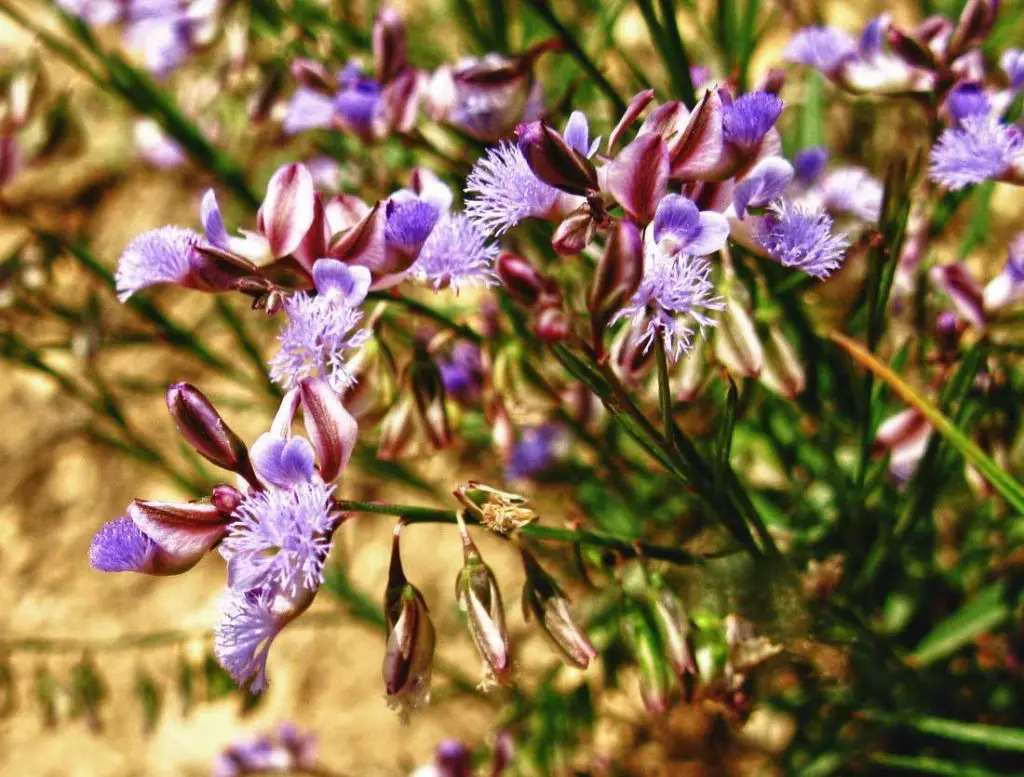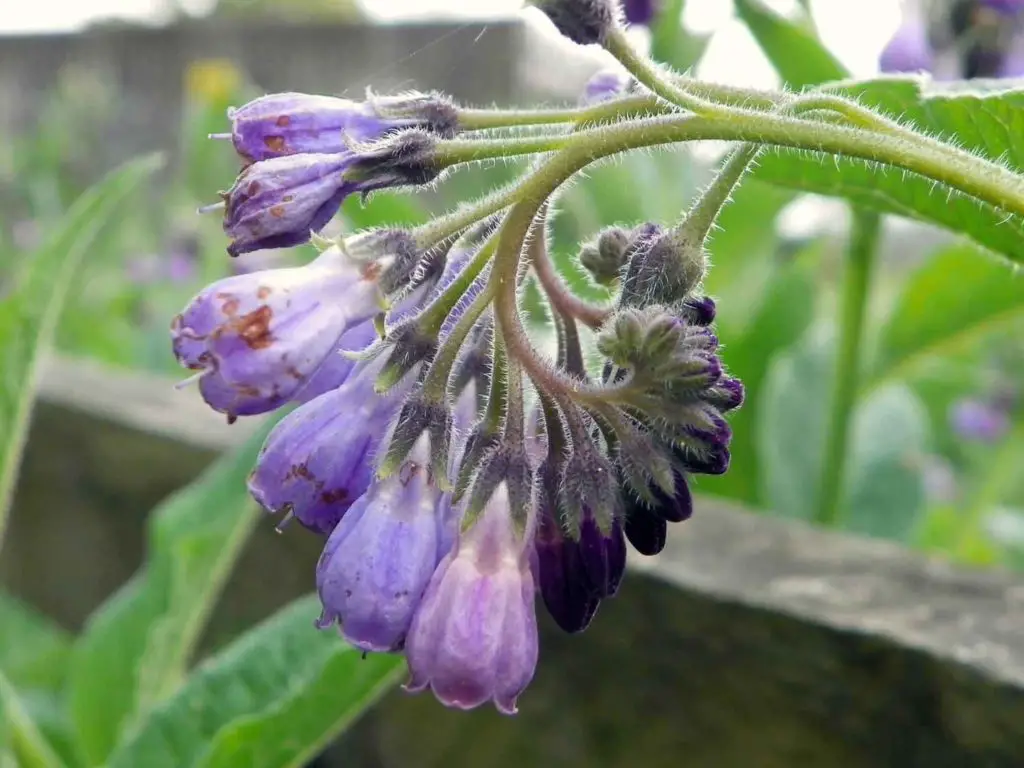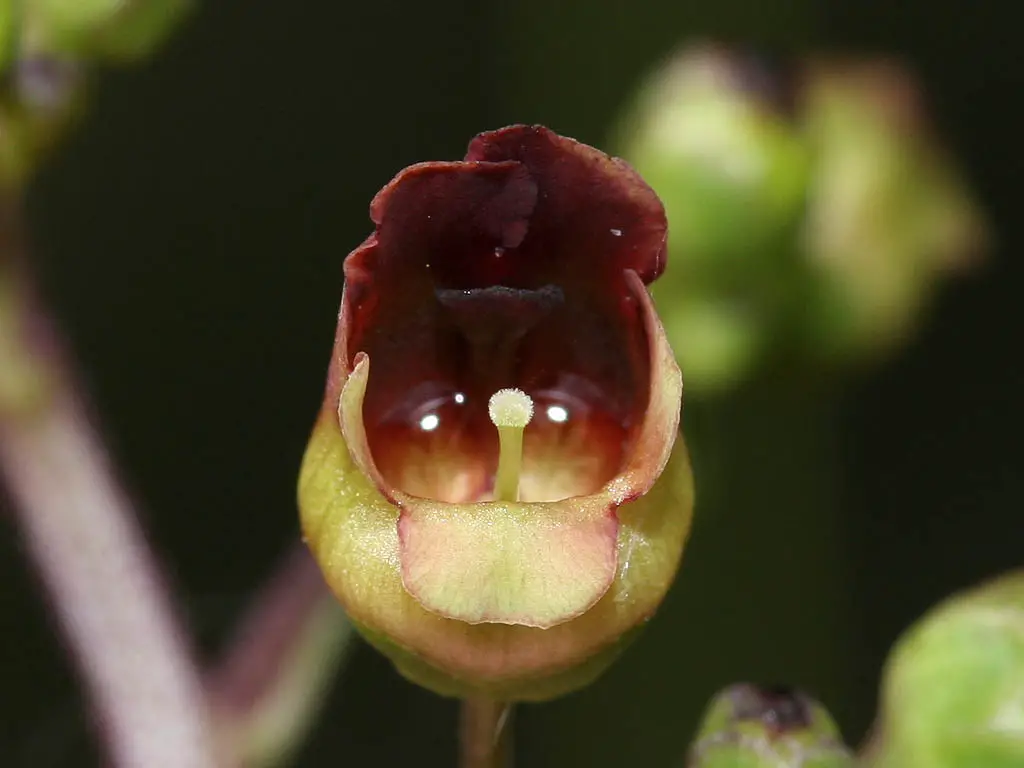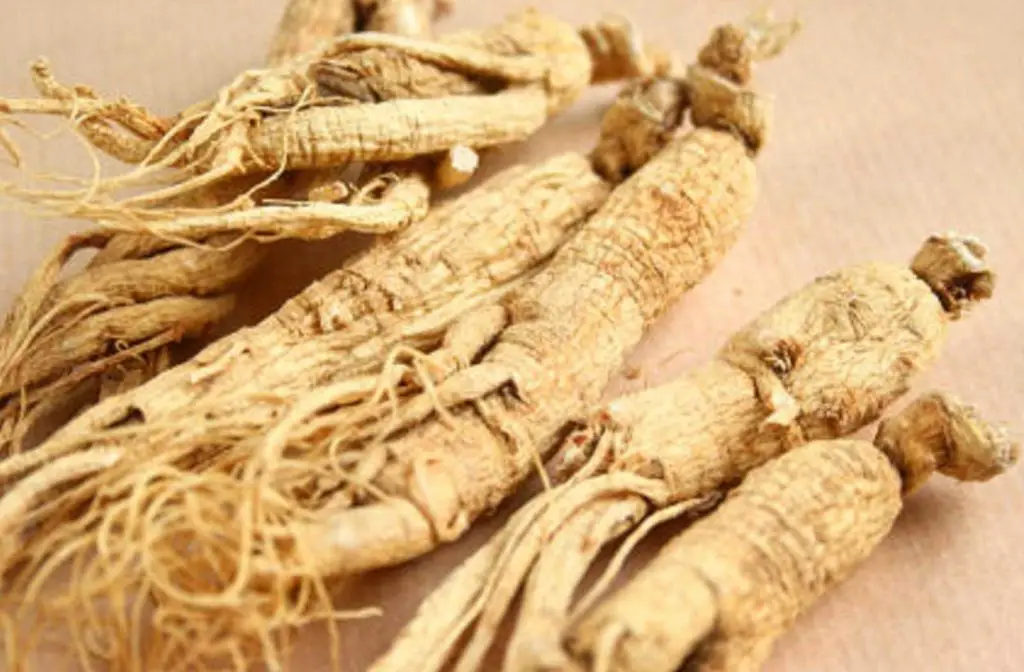What is Polygala tenuifolia?
Polygala tenuifolia, also known by its Chinese nomenclature yuan zhi, is one of fifty fundamental herbs in traditional Chinese medicine. It belongs to the family Polygalaceae, colloquially known as milkwort, which is comprised of approximately 900 known species of herbs and shrubs. Polygala tenuifolia has a storied history of medical use in Chinese herbal therapy, and is most commonly prescribed in the treatment of amnesia, insomnia, unusual palpitations, and depression. It is primarily understood as a therapeutic agent in the treatment of cognitive ailments, though it is also less commonly utilized to treat asthma, chronic bronchitis, and excess phlegm production in the esophagus.
Polygala tenuifolia has a flowering body comprised of small, vividly purple blooms atop long herbaceous stems. The herb has a crisp fragrance often compared to that of green winter. Typically, a dried fruit extract is taken from Polygala tenuifolia’s root and ground into a powder for medicinal use. There are numerous ways to ingest the root extract; some opt to cook roughly ten grams of the extract in walnut milk and add sugar to sweeten. Some enjoy Polygala tenufolia extract along with date seeds. For the initial preparation, users will typically soak about 500 grams of Polygala tenuifolia in 75 percent ethanol in boiling water to create the initial solution.
The Chinese name yuan zhi translates literally to “high aspirations.” This indicates the herb’s potential potency as a neuroprotectant and cognitive enhancer. Polygala tenuifolia’s adherents have historically described the herb as an agent to improve creative thinking, support meditation and focus, and even enhance dreaming. Though more research is needed to solidify Polygala tenuifolia’s status as a nootropic herb, clinical studies have supported its potential beneficial effects.

Polygala tenuifolia Benefits and Uses
Anxiety
In a study published by Animal Cells and Systems, researchers examined the effects of crude Polygala tenuifolia on stress-induced anxiety behavior in mice. For fourteen days, mice were administered Polygala tenuifolia thirty minutes prior to a stress-inducing activity. The anxious mice exhibited dysregulation in the hypothalamic-pituitary-adrenal axis in response to repeated restraint stress. However, those that were adminisitered Polygala tenuifolia underwent a reversal of this dysregulation in the locus coeruleus and the hippocampal region of the brai
. Further, the treated mice demonstrated increased behavioral exploration in the elevated plus maze. These findings indicated to researchers that the administration of Polygala tenuifolia is likely to attenuate anxiety responses in nervous subjects.
A preclinical study published by PLOS One and Kyung Hee University in South Korea yielded similar findings. According to researchers, a root extract of Polygala tenuifolia demonstrated anxiolytic and antidepressant effects in eight-week-old male C57BI/6 mice by decreasing “behavioral despair” in the forced swim test. Further, researchers observed that the number of failed escapes in the learned helplessness paradigm effect were decreased after treatment. These results were observed thirty minutes after an oral administration of 0.1 mg/kg of Polygala tenuifolia root extract. Researchers concluded that Polygala tenuifolia extract may have rapid-onset antidepressant and anxiolytic effects that are worth further examination.
Memory
In a clinical study published by Evidence-Based Complementary and Alternative Medicine, researchers at the Chinese Academy of Medical Science and the University of Cambridge evaluated the memory-enhancing effects of a crude extract of Polygala tenuifolia in memory-impaired aged mice. They noted that, after administration of the root extract, impaired spatial memory of elderly mice was partially reversed in the Morris water maze test.
Further to this, administration of Polygala tenuifolia increased superoxide dismutase (SOD) and catalase (CAT) activities in the brain tissue of the aged animals. As a result, researchers concluded that Polygala tenuifolia extract has the capacity to improve memory function in organisms with age-related memory degeneration.
Polygala tenuifolia’s memory-enhancing capabilities have also been evaluated in healthy organisms. In a study published by Acta Pharmacologica Sinica, researchers examined the effects of Polygala tenuifolia root extract on spatial learning and memory in healthy laboratory mice. Results indicated that, when administered at 0.125, 05, or 2 mg/kg, intracerebroventricular (icv) treatment of Polygala tenuifolia induced long-term potentiation and enhanced synaptic transmission in the dentate gyrus of rats. These findings suggest that Polygala tenuifolia may yield positive therapeutic effects on hippocampus-dependent cognition and memory through the elevation of synaptic activity.
Cognitive Function
Another study published by the Journal of Neuroscience Research yielded similar results. Researchers evaluated the cognitive enhancing impacts of a dried root extract of Polygala tenuifolia Willdenow. Researchers utilized a passive avoidance and maze test on rats with scopolamine-induced cognitive impairments, and explored Polygala tenuifolia’s protective effects aganist neurotoxicity in primary cultured neurons of laboratory rats. The administration of Polygala tenuifolia significantly reduced neuronal cell death and partially reversed cognitive impairments in rats with neurodegenerative diseases related to central cholinergic damage and neurotoxicity.
In a study of neurogenesis (the process by which neurons are produced) published by Phytotherapy Research, researchers investigated the effects of Polygala tenuifolia root extract on the proliferation of a hippocampal stem cell population in rats. After 2 mg/kg/day of intraperitoneal injections for fourteen days, rat branis exhibited increased incorporation of bromodeoxyuriidine (a synthetic nucleoside involved in DNA synthesis) into the CA1 region of the hippocampal region. This activity suggests that Polygala tenuifolia root extract stimulates the proliferation of neural stem cells and neurite outgrowth factor. Put simply, Polygala tenuifolia root was concluded to be potentially therapeutic in the treatment of individuals with neurosis and dementia.
Another study pointed to one of the acylated ogliosaccharides in the Polygala tenuifolia root as a bioactive component in terms of neuroprotective therapy. The study, published by Biological and Pharmaceutical Bulletin, indicated that Tenuifoliside B(1) exhibited a cerebral protective effect on potassium cyanide-induced anoxia and ameliorated scopolamine-induced performance impairment in mice during the passive avoidance test. The compound appeared to enhance the cholinergic system, indicating its potentiality as a therapeutic in the treatment of cerebrovascular diseases and damage.
Depression
Though its mechanism of action in treating depression is still being evaluated in research, Polygala tenuifolia extract has demonstrated rapid onset antidepressant activity in clinical studies. For example, a study published by Pharmaceutical Biology examined the therapeutic effects of YZ-50, an active fraction extracted from the root of Polygala tenuifolia, in a chronic mild stress (CMS) model of depression in Sprague-Dawley rats. 140 and 280 mg/kg dosages of Polygala tenuifolia were repeatedly administered to rats over the course of a 28-day trial. Results yielded that YZ-50 reversed neurological changes induced by CMS in terms of plasma corticosterone levels and hippocampal BDNF mRNA levels.
Further, researchers observed that CMS-related behaviors in rats were impacted in a way that suggests an antidepressant effect on the part of the Polygala tenuifolia extract. They concluded that this effect is at least partially mediated by the neuroendocrine and neuropopective systems. Further clinical evidence is needed to credit Polygala tenuifolia and its constituents as a viable antidepressant or complementary therapeutic.
A study published by Frontiers in Pharmacology produced similar results. Researchers evaluated the therapeutic effects of a synergistic neuroprotective treatment involving two esters extracted from the Polygala tenuifolia root: 3,6’-Disinapoyl sucrose (DISS) and tenuifolisideA (TFSA). Using biochemical (NOS activity) assays, researchers found that DIISS and TFSA exhibited a clear synergistic effect, ultimately engaging in neuroprotective behavior on the CREB-BDNF (cellular transcription factor) signaling pathway. Given that CREB upregulation may activate downstream targets after antidepressant treatment, this key signaling behavior indicates that the bioactive components of Polygala tenuifolia may be viable in the treatment of depression and other neurotrophic mental disorders.
Sleep
A study published by Neuropsychiatry evaluated the therapeutic effects of Polygala tenuifolia on sleep duration in comparison to the benzodiazepine Alprazolam, known more commonly by its trade name Xanax. After pharmaceutical administration, mice with sleep disruptive behaviors were anchored with electroencephalogram (EEG) electrodes and observed during sleep for an 8-day period. Results suggested that both Alprazolam and Polygala tenuifolia extract were able to abbreviate sleep induction time and increase theta, v, delta, and k complex waves in order to facilitate deeper sleep. Researchers noted that theta wave duration was slightly longer in the Polygala tenuifolia group. These findings indicate that Polygala tenuifolia may be a viable alternative to certain sleep-inducing pharmaceuticals for patients with insomnia.
Polygala tenuifolia Dosage
Polygala tenuifolia root is most commonly consumed in powdered, capsule, or tincture form. In traditional Chinese medicine, its root extract is taken in a water-based decoction such as tea or soup.
It is important to note that the only human studies evaluating the therapeutic impact of the Polygala tenuifolia root have used 100 mg of an ethanolic extract thrice daily. For that reason, consumers are advised not to exceed the evaluated clinical dosage of 300 mg in total per day.
How to Prepare Polygala tenuifolia (Yuan Zhi) Tea
Put 3-9g of your Yuan Zhi Root in your pot. Add liquid and boil for about 10 minutes. And enjoy! You can leave the root behind.
Polygala tenuifolia Side Effects, Safety, Dangers and Warnings
In a preclinical safety study, researchers and Dankook University in the Republic of Korea examined the toxicological properties of the root extract of Polygala tenuifolia. No toxicological changes or mortalities related to the substance were observed after administration to cats or dogs. However, while testing subchronic toxicity, researchers found that two animals were found deceased in the female group of 1,000 mg/kg/day.
Polygala tenuifolia has been contraindicated as a uterine stimulant and emmenagogue in pregnant or lactating individuals. It is also inadvisable for individuals with peptic ulcer disease, inflammatory bowel disease, or similar ailments to ingest the herb regularly. When taken routinely, Polygala tenuifolia root can be irritating to the gastrointestinal tract. Further, Polygala tenuifolia is contraindicated in patients with diabetic diseases.
References:
https://www.frontiersin.org/articles/10.3389/fphar.2016.00337/full
https://www.hindawi.com/journals/ecam/2014/392324/
https://www.hindawi.com/journals/ecam/2014/570134/
https://www.ncbi.nlm.nih.gov/pmc/articles/PMC4007183/
https://www.ncbi.nlm.nih.gov/pubmed/15256744
https://www.ncbi.nlm.nih.gov/pubmed/18693285
https://www.ncbi.nlm.nih.gov/pubmed/20645779
https://www.ncbi.nlm.nih.gov/pubmed/24520403
https://onlinelibrary.wiley.com/doi/abs/10.1002/jnr.10429
https://pdfs.semanticscholar.org/0c24/e14eba21b6c5e990be2f25e3cafbe717a712.pdf
https://www.tandfonline.com/doi/pdf/10.1080/19768354.2014.982176






